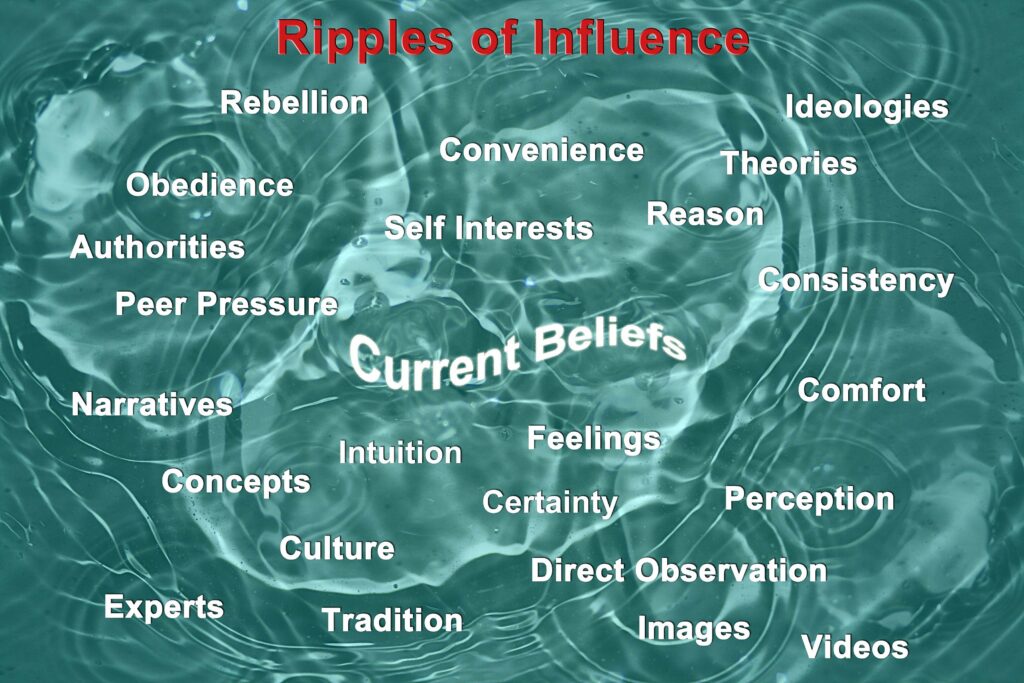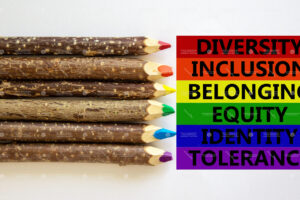3 Implicit Bias About Women in STEM
Have you ever thought about implicit bias? What are they and how they can impact our life? Women in STEM have to face implicit bias all the time. What can we do to make it better?
Let’s try to find out which are the 3 most common implicit bias women in STEM have to face in their everyday working life and possibly everyday life!
Humans are very complex beings and human brains have evolved throughout ages of evolution.
We had to make decisions to survive and our brains are continuously exposed to enormous amount of information.
Studies in Neurobiology show that the human brain has two different systems to take decisions:
1. The automatic system that is working continuously, and it is the base of our survival. It helps us recognize danger, threats and allows us to perform automatically many tasks without any special thought or consideration.
This is also the part that plays a big role in the implicit bias. That is when we have a specific behavior and attitude toward people, or we associate stereotypes without our conscious knowledge.
2. The conscious system is the one responsible for our thinking and taking decision with conscious awareness.
What we do not often realize is that without a conscious effort, the automatic system takes over and the decisions are driven by instincts and consequently by implicit bias.

Implicit Bias #1: STEM = Men
Isn’t our society convinced that STEM is for men? and that women are more often associated with Liberal Arts than Science?
When we talk about great scientific minds, do we ever come up with female examples rather than male?
When talking about computer science have you ever thought of Grace Hopper? She was an amazing computer scientist who created the first standardized general business computer language, known as COBOL! We rather talk about men such as Steve Jobs!
Or when talking about physics why not mentioning Marie Curie rather than only Albert Einstein? Marie Curie is the only women until today to have won two Nobel Prizes. The first in Physics in 1903 and the second in Chemistry in 1911.
Or when talking about great discoveries in biology, let’s mention Rosalind Franklin before Watson and Crick.
If we have the implicit bias that STEM=men is because for centuries women have been treated as second class citizens, who did not need an education even less an education in STEM.
Sadly enough, there are still societies believing it to this very day!
Women were often considered only pawns for alliances or power exchange, or the means for procreation or as family carers.
I am not implying that the being a mother or a carer should not be important, but what I am saying is that women should not be defined by their ability to have children!
We have to change bias that exist since centuries.
But we have to face one more problem in STEM. Very often, in STEM fields there is the perception that they are free of gender bias! How often especially in Academia one hears the claim that “we only look at merit not gender, when evaluating colleagues, proposals, grants, or when reviewing papers.”
The truth is that more often than not we simply prefer to ignore implicit bias!

Implicit Bias # 2: Brilliance = Men
How is possible that 6-year-old girls are less likely to think that women can be really smart? Boys of the same age already believe that men can be or actually are really smart, but they expect women to be nicer than men!
This is all due to how children are growing. What messages they receive at home, in school, by watching television.
There are studies proving that children, especially girls with parents in STEM are less biased and they do believe that they can do whatever they want and can certainly succeed in STEM.
But sadly enough, they still need to fight against the implicit and explicit stimuli of the external world. And let’s face it, women and men have very specific roles in our society.
If teachers in school have the same bias and are grading children based on gender and not achievement and skills, how do we think boys and girls will grow up? Won’t they unconsciously learn the same bias?
Despite having been put in a corner for centuries, it is still rather remarkable the contribution of women in STEM. What is truly unbelievable is that we are not ready to celebrate these women and talk about them and give them as role models and example to follow for new generation of girls and boys.
We do not have to forget that women never ever had equal opportunities in the last few centuries if not ever!

Implicit Bias # 3: STEM = Men Association
Here it is the strange thing that happens to girls who pursue STEM studies and then careers. They are often left alone.
It is apparently human nature to hang out with people of our same gender whether they are friends or colleagues. But what we do not seem to realize is that in environments where women are underrepresented this means very reduced networking and very limited social connections.
There are a number of factors that might contribute to this. Men’s implicit bias to see STEM as men’s fields and therefore they associate it more with men than women. The consequence is to unconsciously avoid making connections with colleagues who are women.
Colleagues who are women in STEM are considered less valuable and not helpful in terms of promotions and career progress.
Exclusion and lack of connections very often have a negative impact on performance, success, and engagement at the workplace. And it is actually ending up in women leaving STEM.
The other effect of lack of cross-gender connection, is that in a male dominated environment, when choosing protégés to mentor men prefer other men. And women seem to be mentored by men only when the men choose to do so. Women seem to rarely actively seek a male mentor.

How can we break all the implicit bias?
We need to inform ourselves! There are many voices out there that help us recognize and break the bias!
We have to be aware that implicit bias not only exist in STEM, but they affect other aspects of our life. We have to be aware of all bias whether obvious or implicit.
Let’s stop contributing to the bias. We have to recognize the inequality around us. In our world, in our family, in our workplace!
We have to deliver the message clear and loud: girls and boys are equally capable.
Intelligence is not gender exclusive. There are plenty of example of intelligence and stupidity from both sides.
We need to change our way of thinking! We need to stop falling in the same traps! There is an enormous number of successful women in STEM and society who have shaped the world we are living in.
Let’s talk about them, let’s use them as role models to follow for boys and girls! Let’s stop spreading the stereotypes ourselves! STEM we (girls) can and don’t you forget it!
Implicit and explicit bias extend to more than just gender!
In these times, when we are teaching computers how to learn, and we talk about artificial intelligence (AI) becoming responsible for several aspects of our lives, it becomes even more important and urgent to be aware of implicit bias! After all AI will inadvertently and unavoidably magnify them.
Computers learn from us, certainly not on their own!
The bias is not only about women in STEM, but extend to gender identity and geographic affiliation, to name a few.
It is important that organizations actively promote gender identity, equity and value gender diversity by starting to be more inclusive when creating bodies to evaluate grants or proposals to distribute funds, or to evaluate candidates for open positions, or when creating editorial boards and choosing reviewers.

Just remember women in STEM need a chance!
In my own experience, women are always extremely factual. They never oversell themselves, most of the times they are rather humble and down to Earth. If they say they know how to do something, they really do. If they say that they have a basic knowledge of a topic, you can bet that they still know a lot.
Alas this is not the case with men. They really know how to sell themselves. They always pretend to know everything and are not afraid to claim to be expert! But when you actually interview the best of them, you might be surprised! Not on how much they know but how little!
I will say it over and over: give women a chance!
If we do not all make an effort to improve the world we work and live in, who will?
Are you ready to work actively to create a world that values creativity, diversity, equality and equity?








